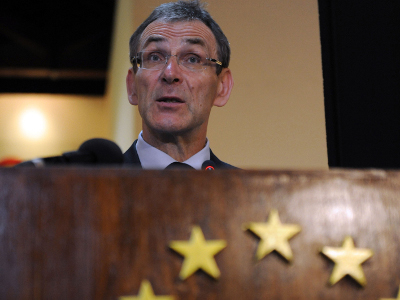On 13th October 2011 the Commission presented its 'Agenda for Change ' and reform proposals for EU budget support, setting out a more strategic EU approach to reducing poverty, including a more targeted allocation of funding.
Document linked here.
The European Union as a whole (Member States plus Commission-managed funds) is the most generous donor of official development aid worldwide. In 2010, it provided €53.8 billion - more than 50% of global aid. The European Commission is responsible for the management of €11 billion of aid per year, putting it in second place among donors globally.
Future EU development aid spending should target countries that are in the greatest need of external support and where it can really make a difference, including fragile states.
Cooperation should take different forms for countries which are already experiencing sustained growth or which have sufficient resources of their own. EU assistance should focus on two priority areas:
- Human rights, democracy and other key elements of good governance, and
- Inclusive and sustainable growth for human development.
 | |
| EU Commissioner for Development Andris Piebalgs. Photo:EU |
The EU aims to help create growth in developing countries so they have the means to lift themselves out of poverty. Aid will therefore target particular areas:
social protection, health, education and jobs
the business environment, regional integration and world markets, and
Sustainable agriculture and energy.
The EU should also try to further improve the effectiveness of the aid it delivers. This can be done by making sure that Member States and EU Commission jointly prepare their strategies and programmes and divide labour better amongst themselves.
Furthermore, the EU will explore innovative ways of financing development, like the blending of grants and loans. It should also improve the coherence of its internal and external policies: European action in many areas like environment, trade, climate action, etc affects development countries. Here, the overall impact of EU development policy can still be improved.
A significant share of EU aid is delivered in the form of budget support: financial transfers to government budgets in developing countries, coupled with policy dialogue, performance assessment and capacity building. The Commission proposes to make it more effective and efficient in delivering development results by strengthening the contractual partnerships with developing countries.


I would like a very serious and credible group to do and report independent evaluations of programs. Real stuff, not the usual surface crap.
ReplyDelete